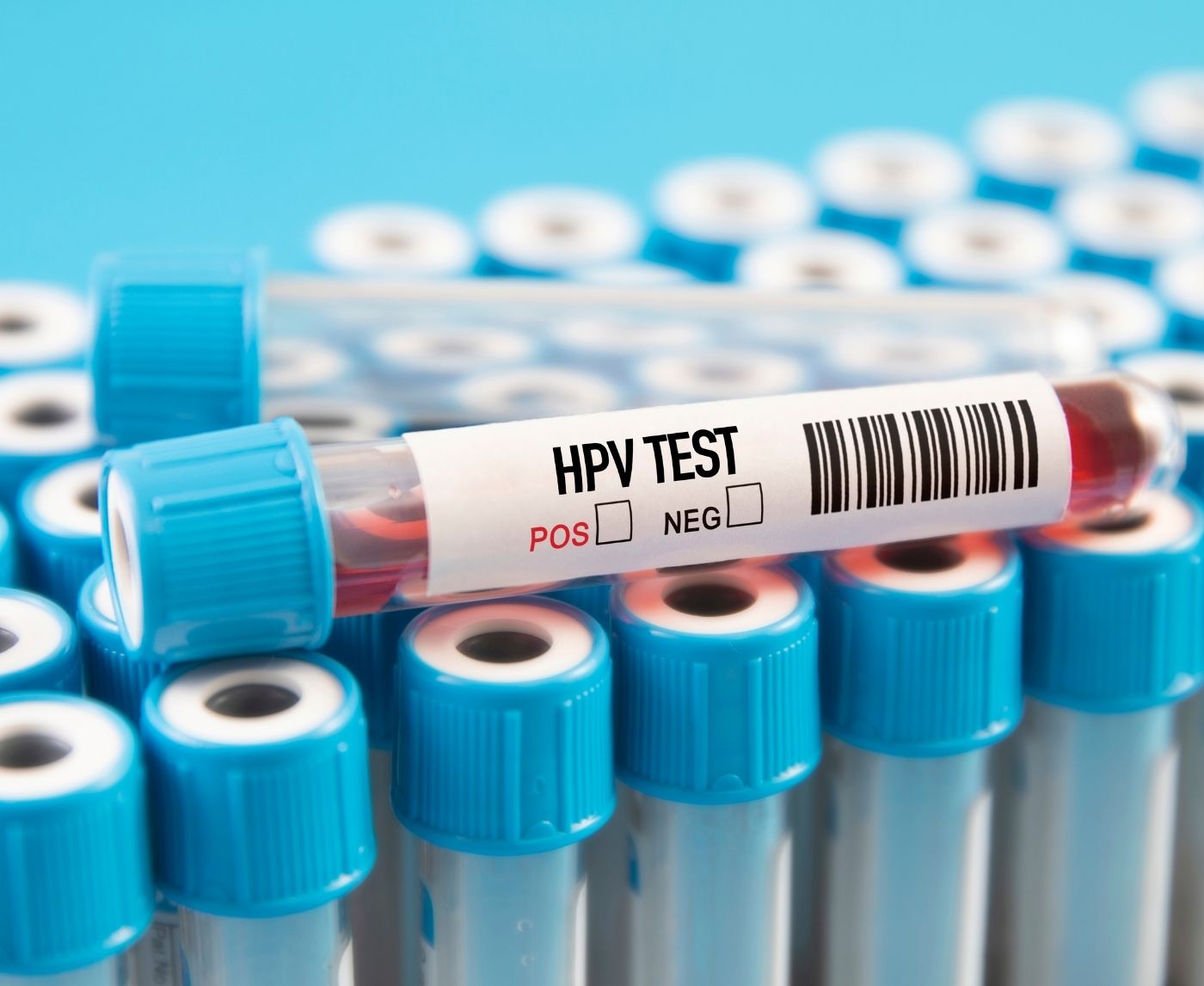When Is the Right Time to Get Tested for HPV?
Quick Answer: Flu-like symptoms after unprotected sex could be acute Hepatitis B. Unlike the flu, Hep B often involves dark urine, right-side abdominal pain, or jaundice. If you feel sick and had recent sexual exposure, test within 3–6 weeks after the encounter for accurate results.
Why This Article Exists (And Who It's For)
Maybe you’re lying in bed with a fever and chills after a wild weekend. Maybe you told your friends it’s probably just the flu. But something feels… different. Your pee looks darker. You’re more tired than usual. And yeah, you didn’t use a condom last time. If this sounds familiar, you’re exactly who this article is for.
We wrote this for the people who can’t shake that gut feeling that their “flu” isn’t the flu. For those too embarrassed to tell their partner. For anyone Googling symptoms at 2AM while refreshing their email for test results. For the folks who think STDs only come with visible signs, spoiler: they don’t.
In the sections ahead, we’ll show how Hepatitis B can masquerade as a harmless cold, walk through exact testing timelines, and explain what to do if you’re sick and unsure. There’s no judgment here, just straight answers, solid science, and a path forward.

People are also reading: The Most Dangerous Sex Act for STDs (And How to Stay Safe)
Why Hepatitis B Feels Like the Flu (Until It Doesn’t)
Here’s the deal: acute Hepatitis B often starts just like a viral infection, think body aches, low-grade fever, fatigue, and nausea. In many cases, that’s all it ever is. The immune system clears the virus without fanfare, and the person never knows they had it. But sometimes, the symptoms escalate, or they stick around just long enough to raise suspicions.
Unlike the flu, Hepatitis B isn’t a respiratory virus. It attacks the liver, which explains the non-specific, full-body symptoms that are easy to dismiss. But there are a few key signs that should raise your eyebrows:
Table 1. Comparison of flu vs Hepatitis B symptoms. Notice how liver-specific signs (jaundice, dark urine, abdominal pain) help distinguish the two.
If you’re dealing with multiple flu-like symptoms after recent sexual exposure, and especially if you notice dark urine or any yellowing of your eyes, it’s time to think beyond a common cold.
“I Thought It Was Just a Bug”
Ramon, 28, was sure he had caught something at the gym or on the subway. Chills, aches, brain fog, it screamed flu. “But after a week, I still felt awful. I also noticed my pee was way darker than normal,” he recalls. “That’s when I Googled Hepatitis B symptoms and panicked.”
Two weeks earlier, he’d had unprotected sex with a casual partner. He hadn’t thought much of it, there were no visible rashes, no discharge, no pain. “I didn’t even know Hep B was an STD,” he said. A rapid test later confirmed his infection. The doctor told him the timing was lucky, he caught it before long-term damage.
“If I’d just written it off as the flu, I might not have gotten diagnosed in time. Now I’m making sure every partner knows. It’s no joke.”
Ramon’s story isn’t rare. Most people don’t associate “flu-like” symptoms with Hepatitis B, but it’s one of the most common early presentations, and it’s often missed.
So When Should You Test?
Timing is important. A lot. If you test too soon, your body might not have made enough antibodies or viral markers that can be found on a test to show that you have an infection. But if you wait too long, you could unknowingly spread Hepatitis B or miss early treatment opportunities.
Testing for acute Hepatitis B should start about three weeks after exposure, but the best time for accuracy is between four and six weeks. If you have symptoms before then, you should still get tested. Just be ready to get tested again if the first test comes back negative.
Here’s how the testing timeline shakes out based on what we know about the virus:
Table 2. Timeline for Hepatitis B testing after potential exposure. The 3–6 week range is the sweet spot for catching acute infection with most standard tests.
Keep in mind: testing too early can create false peace of mind. If you’ve had unprotected sex and now feel sick, even just a mild fever or strange fatigue, it’s better to test once and plan a follow-up if needed. Don’t rely on symptoms alone; not everyone with Hep B gets jaundice or pain. Still unsure, check out our article on testing windows to have a clearer picture.
Which Test Should You Use?
There are three main paths to diagnosing Hepatitis B: at-home rapid tests, mail-in lab kits, and clinic-based blood tests. Each has trade-offs in privacy, speed, and reliability. Let’s break them down in real-world terms.
Imagine this: you’re curled up on the couch, shivering under three blankets, and unsure if you should go to urgent care. You could order a test now and have results in minutes, or you could wait days for a lab kit to be delivered, then mailed back. What matters most to you: privacy, speed, or certainty?
Table 3. Overview of common Hepatitis B testing options. The choice depends on urgency, privacy needs, and how recently exposure occurred.
If your head keeps spinning, peace of mind is one test away. Order a discreet Hepatitis B rapid test kit and get answers in minutes, without ever leaving home.
What If You Already Feel Sick?
Let’s say your fever started three days ago, and you’re already dealing with nausea, fatigue, and a complete lack of appetite. Should you wait to test? No. If symptoms are present, especially after unprotected sex, it’s better to test now and follow up later if needed. Some people are symptomatic sooner than others, and no one should have to wait in uncertainty.
There’s also an important note here for survivors of sexual assault: early testing is still valuable, even if results need confirmation later. Most clinics and telehealth providers will offer supportive, trauma-informed care and follow-up protocols. You deserve care without waiting for symptoms to “prove” something.
Testing isn’t just about diagnosis, it’s about knowing. And knowing puts you in control, even if the results bring more questions than answers. That’s still a better place to be than stuck in fear or silence.
Do You Need to Retest? Here’s When It Matters
Let’s say you tested negative at the two-week mark. Relief, right? Maybe. But depending on how early you tested, you might have missed the detection window. That doesn’t mean you’re safe, it means your body just might not be producing enough virus or antibodies to be caught on a test yet.
Retesting is especially important if:
- You tested before 3 weeks after exposure
- Your symptoms worsened or changed since your first test
- You’re sexually active with new or multiple partners
- Your first test was a rapid screen without follow-up confirmation
The general rule of thumb? If your test was before the 21-day mark, retest at 6 weeks for maximum accuracy. This gives time for the virus, or your immune system’s response, to show up clearly. Testing isn’t one-and-done if you’re still worried or symptomatic.
And don’t beat yourself up if you missed a detail or got tested too early. Everyone just wants clarity. The smartest move you can make is to keep following through.

People are also reading: Grindr Just Shipped Over a Million HIV Self-Test Kits, Here’s What That Means for You
How to Talk About It (Without Freaking Out)
Let’s be real: telling a partner “I think I might have Hepatitis B” is not on anyone’s bucket list. But neither is living in anxiety. Conversations like this get easier with one truth in your pocket, most people who test positive had no idea when they got infected. It doesn’t mean you’re “gross” or careless. It means you’re human, and you’re trying to take care of your health and theirs.
Here’s a possible way to start the conversation:
“Hey, I’ve been feeling a bit off lately and decided to test. Something came up that might affect both of us, do you have a minute to talk?”
If you’re not ready for that call, use anonymous notification tools, or encourage them to test without details. You don’t owe anyone shame, but you do deserve support. And partners who care about you will want to know the truth, even if it’s hard to hear.
STD Test Kits offers at-home options that make it easier to get answers before these conversations happen. Your health is your power, start with yourself, then invite others in.
What If You’re Starting to Feel Better?
This part’s tricky. Because Hepatitis B can be self-limiting, some people do start to feel better after a few weeks, even while still infected. That’s not a green light to skip testing. In fact, it’s the most common reason acute cases go unnoticed and become chronic. A fading fever doesn’t mean your liver is in the clear.
If your symptoms fade but you still feel off (low appetite, fatigue, weird pain under your ribs), it’s worth checking your liver status. A test can show whether your body cleared the virus or if there’s still work to be done.
Don’t let feeling “okay” stop you from finding out. It’s better to confirm recovery than to guess wrong and miss a chance to prevent long-term damage.
You’re Not Alone, And You’re Not Stuck
If you’re reading this after Googling at 1AM, clutching your stomach and refreshing symptom pages, you’re not alone. And you’re not gross, reckless, or doomed. You’re just trying to figure out what your body is telling you. That deserves clarity, not punishment.
Take back control of your health. Whether you’re still deciding if it’s a cold, or you’re scared it might be more, this at-home combo STD test kit checks for the most common infections, including Hepatitis B. No clinic, no judgment, no waiting room. Just answers.
FAQs
1. Wait, Hepatitis B can feel like the flu?
Yup. And that’s exactly why so many people miss it. We’re talking fever, aches, exhaustion, the whole “crawling back under the covers” experience. The difference? Hep B hits your liver, not your lungs. So if your urine looks dark, or your skin’s a bit yellow, or your energy tanked out of nowhere after sex… yeah, it might not be the flu.
2. How soon do Hepatitis B symptoms show up?
Most people start noticing something’s off around 4 to 6 weeks after exposure. But it can happen earlier, or not at all. Some folks carry the virus without ever getting the textbook symptoms. That’s why relying on “how you feel” is risky when it comes to your liver.
3. I had unprotected sex two weeks ago and now I feel sick. Is it too soon to test?
You can test now, but there’s a catch: your body might not show detectable markers yet. We recommend testing around week 3, then retesting at week 6 if the first result’s negative but your symptoms stick around. Think of it like double-checking your parachute, better safe than sorry.
4. Can I get Hepatitis B from oral sex?
It’s rare, but not impossible, especially if there are cuts, sores, or blood involved. The bigger risk is with vaginal or anal sex without protection. But if you’re swapping fluids, especially during rough play or period sex, there’s still a chance. If your exposure feels risky, get tested.
5. Do I need to panic if I tested positive?
Absolutely not. Hep B sounds scary, but most healthy adults clear it naturally within a few months. The key is catching it early, giving your body rest, and avoiding alcohol or anything that strains the liver. You’re not dirty. You’re not doomed. You just need a plan.
6. Is it possible to have Hepatitis B and feel totally fine?
Weirdly, yes. Some people carry the virus for months, or even years, without a single symptom. That’s part of what makes it so dangerous. You could feel great and still be contagious. If you’ve had recent exposure and haven’t been vaccinated, testing is a smart move.
7. I feel better now. Should I still test?
Definitely. Symptoms can fade even while the virus is doing damage quietly. We’ve seen folks bounce back energy-wise but still test positive weeks later. Your liver doesn’t send push notifications, testing is the only way to know where you stand.
8. What’s the treatment like if I do have it?
For most acute cases, you won’t need medication, just rest, hydration, and liver-friendly living. But your doctor might monitor your bloodwork for a while. Chronic Hep B is different and might need antivirals, but that’s a bridge to cross only if needed. Don’t borrow worry from a future that might not happen.
9. How do I tell my partner without freaking them out?
Deep breath. This conversation’s hard, but it’s also love in action. Keep it simple: “Hey, I tested for Hep B and the result came back positive. I’m taking care of it, and I wanted you to have the info too.” Honesty + facts = power. And if you need a script or support, there are anonymous ways to notify people too.
10. Should I get vaccinated even if I’m not positive?
Absolutely. The Hep B vaccine is safe, effective, and often free at clinics. If you’re sexually active, especially with multiple partners or anyone with unknown status, it’s one of the smartest moves you can make. Protection that lasts decades? Yes please.
You Deserve Answers, Not Assumptions
Flu-like symptoms after sex aren’t always just bad timing. Hepatitis B hides in plain sight, and testing is the only way to know for sure. The earlier you test, the sooner you can take back control of your body and your future.
Don’t wait and wonder, get the clarity you deserve. This at-home combo test kit checks for the most common STDs discreetly and quickly.
How We Sourced This Article: We combined current guidance from leading medical organizations with peer-reviewed research and lived-experience reporting to make this guide practical, compassionate, and accurate. In total, around fifteen references informed the writing; below, we’ve highlighted some of the most relevant and reader-friendly sources.
Sources
1. CDC – Hepatitis B Information
2. World Health Organization – Hepatitis B Fact Sheet
3. Mayo Clinic – Hepatitis B Overview
4. Healthline – Hepatitis B: Symptoms and Treatment
5. Common Misconceptions Associated With STDs/STIs — Urology Times
About the Author
Dr. F. David, MD is a board-certified infectious disease specialist focused on STI prevention, diagnosis, and treatment. He blends clinical precision with a no-nonsense, sex-positive approach and is committed to expanding access for readers in both urban and off-grid settings.
Reviewed by: Dr. Kelsey M., MPH | Last medically reviewed: November 2025
This article is for informational purposes and does not replace medical advice.






